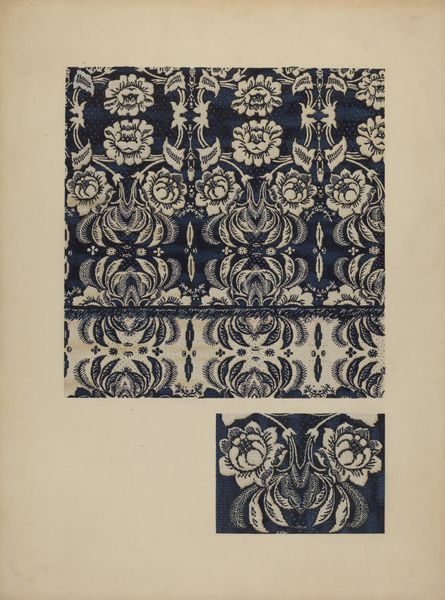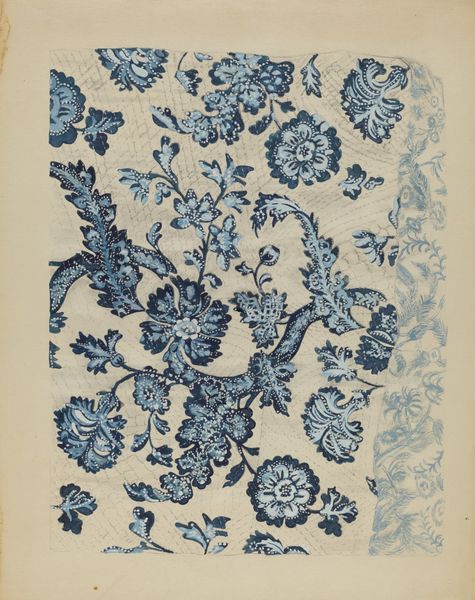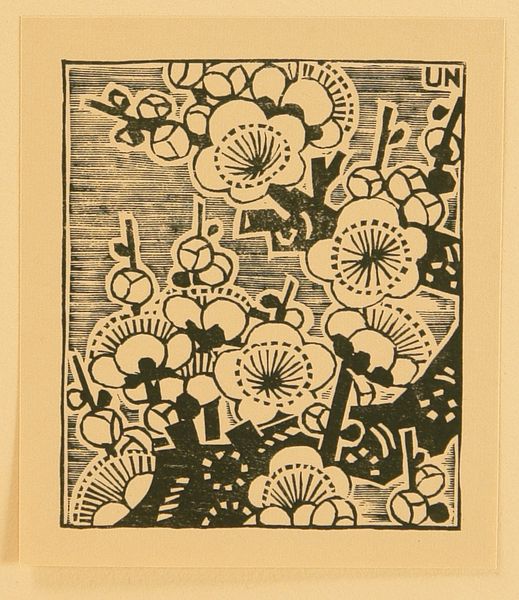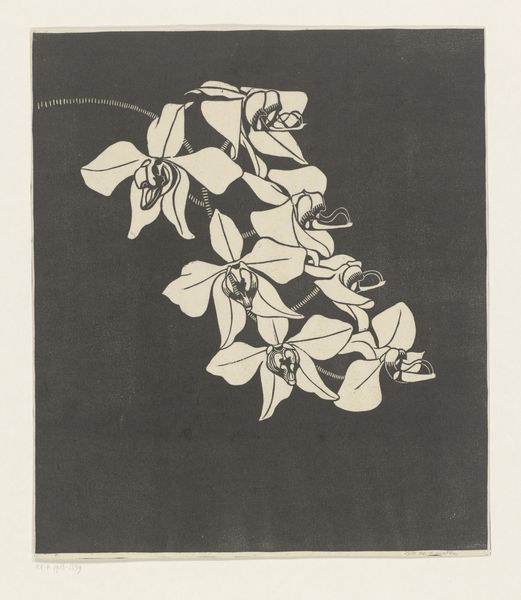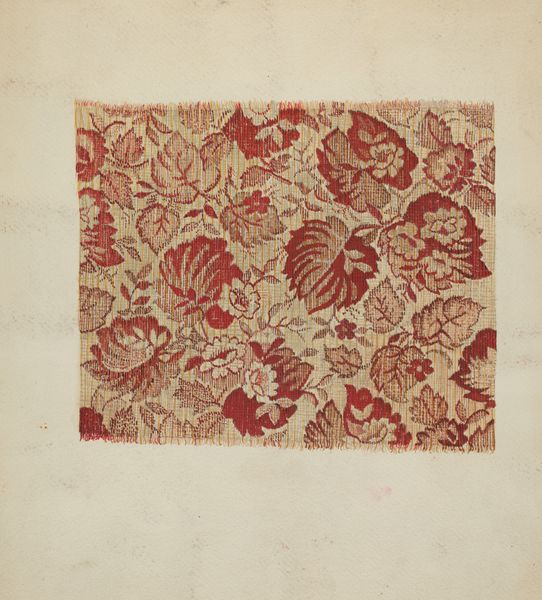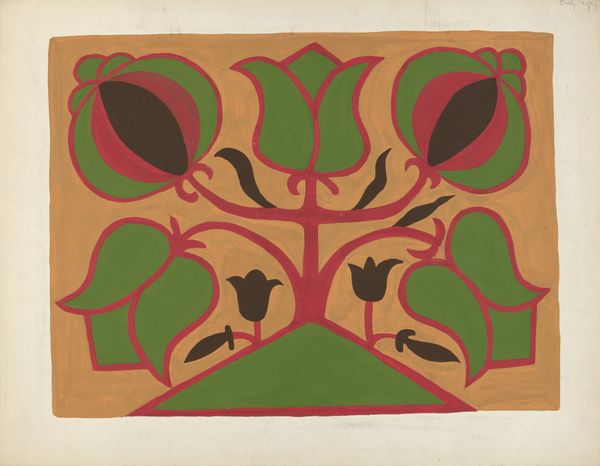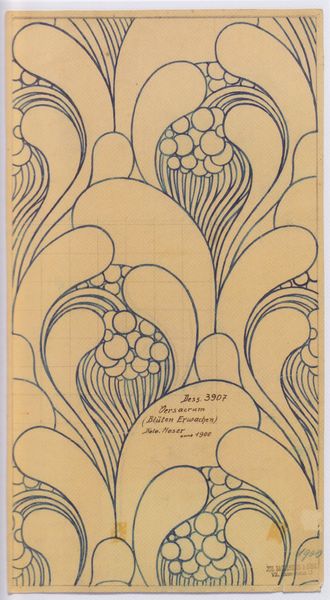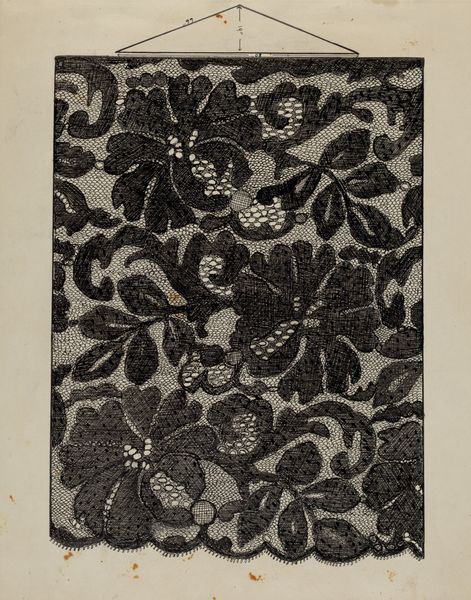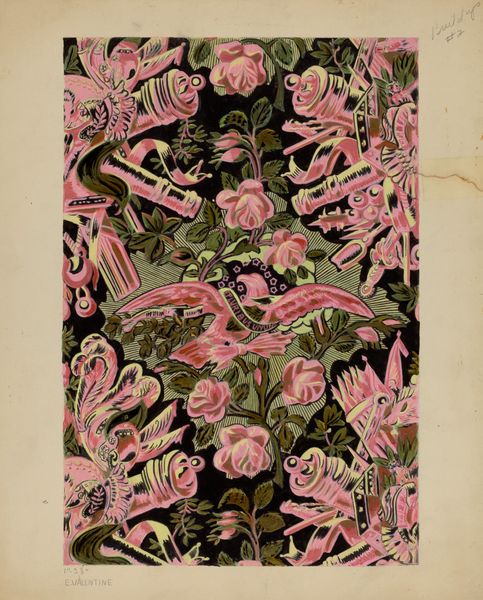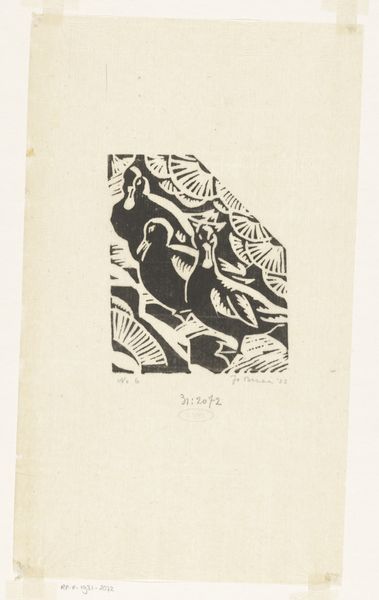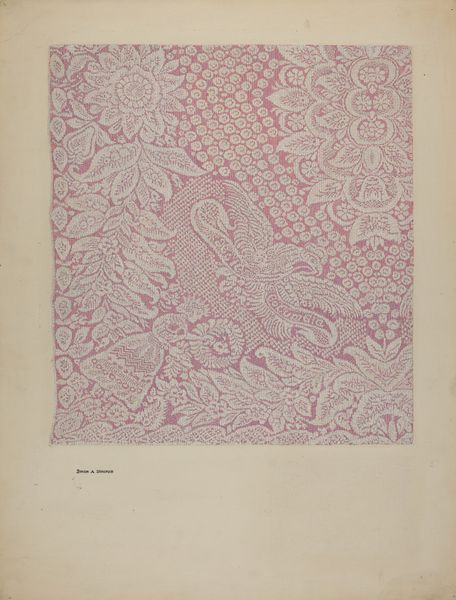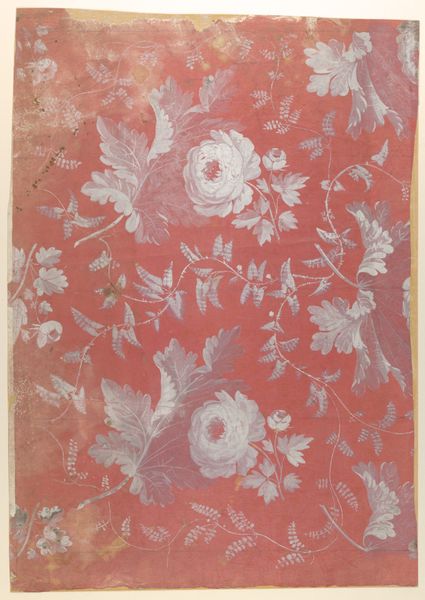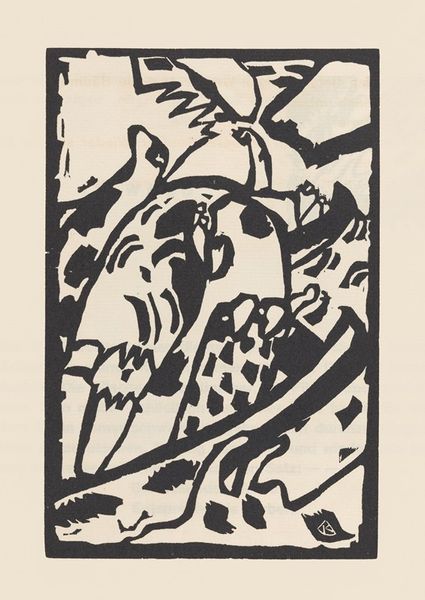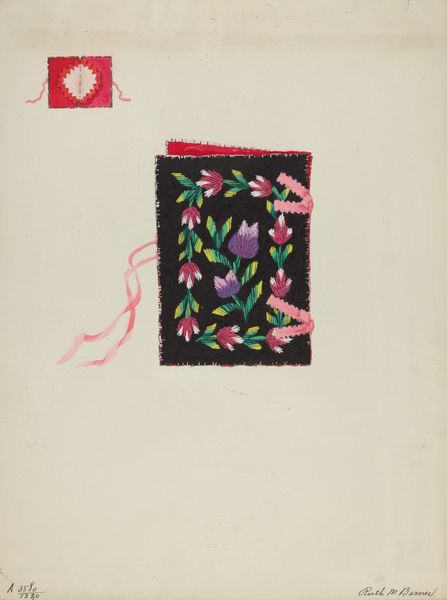
drawing, print, textile, stencil
#
drawing
# print
#
textile
#
stencil
#
linocut print
#
folk-art
#
decorative-art
Dimensions: overall: 48 x 40 cm (18 7/8 x 15 3/4 in.) Original IAD Object: 72" wide; 72" long
Copyright: National Gallery of Art: CC0 1.0
Editor: Here we have "Stenciled Table Cover" created around 1942, the media including textile, print and drawing and stencil. The dense, all-over floral pattern creates a bold statement with a somewhat vintage feel. What stands out to you about its formal qualities? Curator: I'm particularly interested in the stark contrast between the red ground and the black stenciled floral motifs. The composition avoids creating a focal point, instead favouring a balanced distribution of positive and negative space. It provokes an intense visual experience, almost overwhelming the eye. Editor: Yes, the absence of a central point is very notable. Do you think that affects its interpretation or meaning in some way? Curator: The even distribution challenges traditional hierarchies in composition, where some elements are typically emphasized over others. Semiotically, it refuses to prioritize one signifier over another, thus denying viewers a clear point of entry or easy narrative. Note, too, the simplified form of the botanicals; they're representations of representations. Editor: So, it is about form more than the specific plants used for the pattern? Curator: Precisely! Think of the work's flatness: its existence primarily as a visual experience, not aspiring toward illusionistic depth. Consider, too, its serial nature through the printmaking medium, its embrace of reproducibility as integral to the artistic concept. The image refers to its method of manufacture more than the thing it's imitating. Editor: It’s fascinating how the structure and creation speak so much louder than a simple surface image. I’ll certainly view similar textile art differently going forward. Curator: Indeed, close examination of formal aspects unlocks a more profound understanding of the artistic intent.
Comments
No comments
Be the first to comment and join the conversation on the ultimate creative platform.
